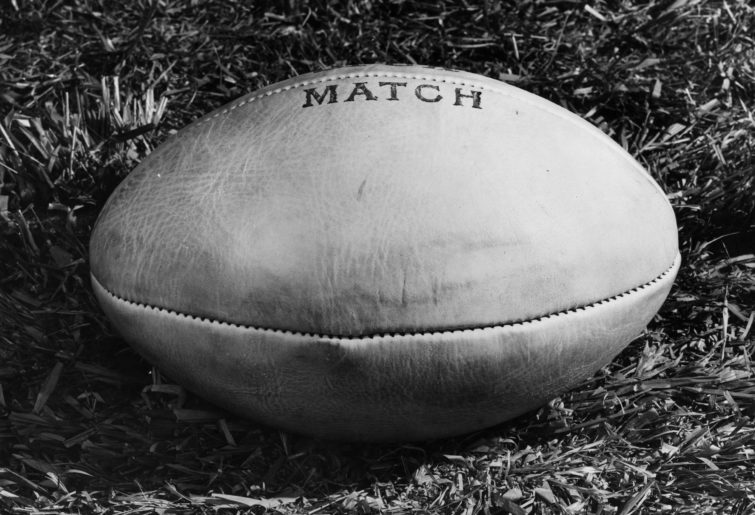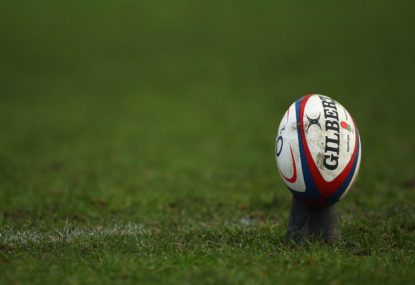As we get older, we can admire the legendary rugby players from the past, who we can appreciate now for their status in the game of rugby union.
Players who once upon a time were disliked, but secretly admired by Australian or New Zealand rugby followers. The players from the rest of the world will now form my theme of “favourite” players.
Players who I distantly remember for their brilliance, courage and unique abilities. Those who are still revered fifty years later, did I just say fifty! How time flies.
I will start with fullback, with the two prime candidates who shone out in my opinion, JPR Williams and Serge Blanco. After much research and thought I must go with the Welshman with the best sideboards and ankle high socks, JPR Williams.
Blanco was a memorably brilliant player, but I feel a connection to JPR through the wonderful 1971 British and Irish Lions tour of New Zealand, the drop goal at Eden Park which I was fortunate enough to witness and the role of Williams in the Barbarians versus All Blacks match in 1972.
He also extended his legendary status on the Lions tour of South Africa in 1974 where the Lions stood up to the Springboks and were not intimidated. JPR represented Wales during their” Golden Era” in the 1970s.
He performed alongside other notables as Gareth Edwards, Barry John and Derek Quinnell.
John Peter Rhys Williams was born 1949 in Bridgend Wales and attended Brynteg Comprehensive School and studied medicine at St Mary’s Hospital Medical School in London. He qualified as a physician in 1973 and became a Fellow of the Royal College of Surgeons in 1980.
If Williams had ignored his father’s life advice, he may well have pursued a career in tennis where he was a high achieving player in his younger years.
His father advised him that while playing amateur rugby he could continue his medical studies as well. “The day on which Williams lost to Howe at Bournemouth would be a crucial one in his opting for rugby. By losing in straight sets, he left time for his father, Dr Peter Williams, to drive him back to Wales to play for Bridgend in a match against Newport.
Williams, still to win his first cap for Wales, arrived at the Brewery Field just in time for the 7.15pm kick-off and played a blinder. ‘I pulled off two tackles on Stuart Watkins, who was the Wales international winger at the time, and I think that cemented my selection for the tour of Argentina in 1968,’ he says.
The rugby world is glad he chose rugby, although JPR himself states that if he had to choose today, tennis would receive the nod. Rugby is too physical now and tennis is more lucrative, “you are more likely to have a long career in tennis than rugby,” JPR shared.
When he shifted his attention from tennis to rugby, he gained notice and was awarded his first cap against Scotland at Murrayfield in 1969.
He went on to make 55 appearances for Wales and captained the side five times. JPR took immense pride in the fact he never lost to England and the Welsh side won Grand Slams in 1971, 1976 and 1978. They also won six Triple Crown’s, the competition between the Home Unions.
From 1971 to 1974 he made eight test appearances for the British and Irish Lions, winning both series against the All Blacks and South Africa.
The drop goal he kicked from halfway broke the hearts of New Zealanders who saw their side lose 2-1. In a provincial match against North Auckland, he defiantly withstood continued attacks by the Going brothers single-handedly.
The 1974 tour will be remembered for the ferocious rugby and the infamous “99” call by the Lions, a signal for the team to attack the Boks, the idea being that the referee could not send of the whole team!
Due to his medical career he made himself unavailable for the 1977 Lions tour to New Zealand. When playing for Bridgend against the All Blacks in 1976 Williams found himself at the bottom of a ruck, not the ideal place to be against the All Blacks and was ruthlessly exposed to the boots of John Ashworth.

(Photo by Fox Photos/Getty Images)
Ashworth stomped on William’s head twice, leaving a gash requiring thirty stitches on the sideline from his father Dr Peter Williams. Graham Mourie can be seen checking on the welfare of Williams. Steve Fenwick was told to take charge, thinking that JPR would be off to the hospital, amazingly he returned to the field and continued playing. Williams vowed to never play against the All Blacks again.
His father made mention of the incident at the after match gathering and several All Blacks walked out. I have viewed it on video and Ashworth appears to do it deliberately, the old, “but I thought it was the ball ref.”
JPR Williams eventually retired from international rugby in 1981 but continued his club career for Tondu Thirds into his fifties.
Carwyn James described him as “fearless, uncompromising. The competitor of competitors.” Some say that Gareth Edwards is the greatest Welsh player, but others including Steve Fenwick concluded that Williams was the best. He was an attacking full-back with a lethal side-step and was a fearless defender.
JPR is now retired in the farmland of Glamorgan, plays squash regularly and is one of the most recognizable figures in rugby. He was one of the inaugural inductees into the International Rugby Hall of Fame in 1997.
If Serge Blanco was a better, braver and more skillful full-back than JPR then he was truly an unbelievable player.
JPR Williams, my favourite “rest of the world” full-back.






























































































